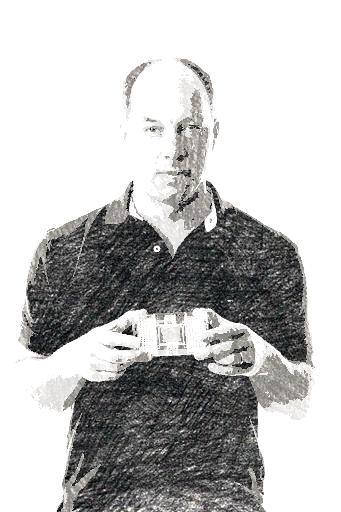Stephen Quake
A revolutionary in the fields of biology, physics, and medicine, Stephen Quake is best known for his work in drug discovery, systems biology, and genome analysis. His inventions have helped shape the world of biology and have provided safer medical alternatives to patients around the world. Quake received the $500K Lemelson-MIT Prize in 2012 for his contributions to the bio-medical field.
Quake grew up during the personal computer revolution and learned about technology early on from his father who worked in the computer industry. His father often brought computers home from work, teaching Quake computer programming. The inventor was lucky enough to have inspirational high school teachers in biology, physics and math, who helped spark an interest in those respective areas.
Quake received a BS in physics and an MS in mathematics from Stanford University in 1991, as well as a doctorate in theoretical physics from the University of Oxford in 1994. Two years later, he joined the faculty at the California Institute of Technology, eventually becoming a professor of applied physics and professor of physics. In 2005, he moved to Stanford University, where he helped found and lead Stanford’s bioengineering department.
As an inventor with interdisciplinary interests, Quake has research experience in multiple biological backgrounds including the human body. He developed a method of non-invasive prenatal testing for Down syndrome and other chromosomal abnormalities. His method involves drawing a small amount of blood from the mother’s arm and sequencing parts of fetal DNA present in that blood sample. Unlike previous existing methods, this groundbreaking innovation doesn’t pose any risks of miscarriage or damage to the fetus.
Quake was inspired to learn more about the immune system when his daughter was diagnosed with food allergies. He observed DNA sequences and used his findings to analyze the immune system and understand its structure. In this way, Quake was able to learn how immune defense processes react to the presence of antigens (anything that your immune system hasn't yet encountered), like a vaccine, for example. Quake’s next-generation sequencing techniques will help us to know more about how our bodies respond to a variety of clinically important conditions, ranging from solid organ transplantation to autoimmune disease. In 2012, he co-founded ImmuMetrix to develop commercial applications of this research.
He holds over 80 U.S patents and other international patents and is the author of more than 200 research papers. He has lectured at scientific conferences and universities around the world and has been recognized with awards such as the Raymond and Beverly Sackler International Prize in Biophysics, Gabbay Prize for Biotechnology and Medicine, and the Max Delbruck Prize in Biological Physics by the American Physical Society.
Quake is a member of the American Academy of Arts and Sciences, the National Academy of Inventors, the National Academy of Sciences, and the National Academy of Engineering. He is a member of the Institute of Medicine and worked for a decade as an Investigator at the Howard Hughes Medical Institute.
Stephen Quake is currently at Stanford University working as the Lee Otterson Professor of Bioengineering and Professor of Applied Physics. He is also co-President of the Chan Zuckerberg Biohub.


